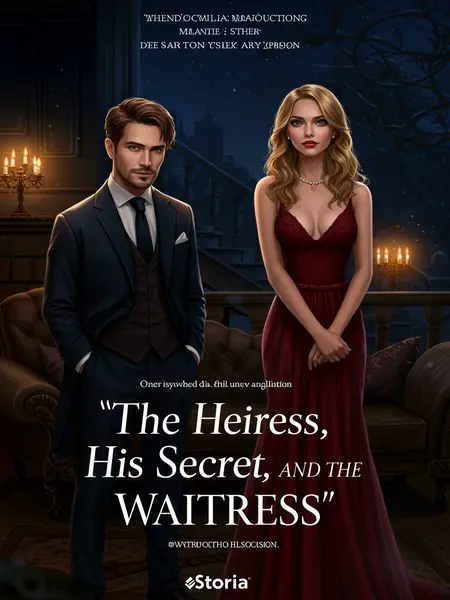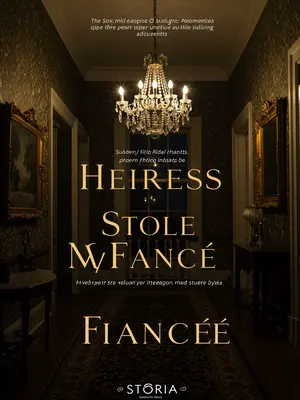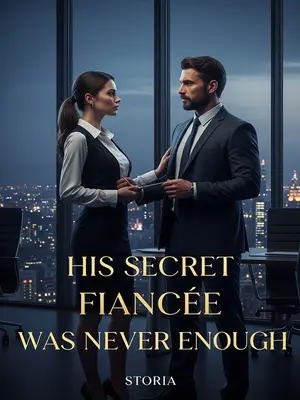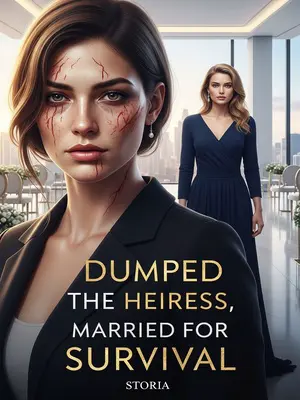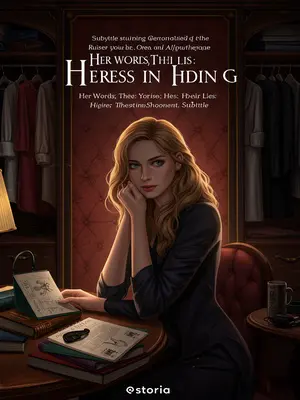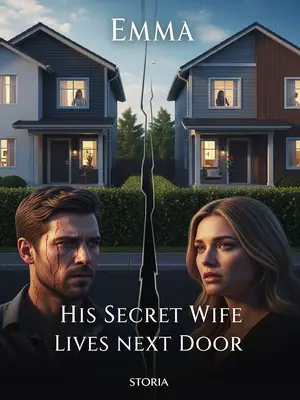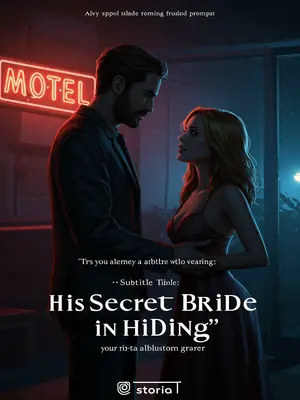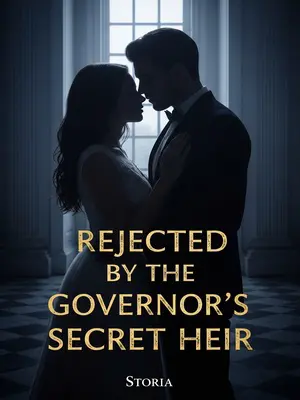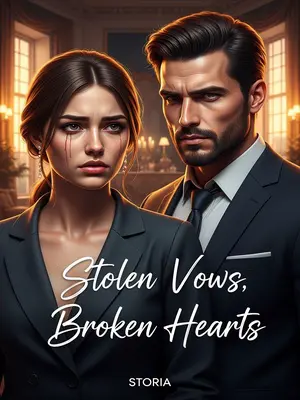Chapter 2: The Birthday Crash
Three months after marrying Ethan Caldwell, I finally met Riley Monroe.
It was late October, the kind of crisp fall day when the leaves in Maple Heights blaze gold and scarlet. The city air was laced with cinnamon from the bakery down the street. And for once, it felt like the world revolved around me.
It was my birthday.
Turning twenty-four might not mean much to most people, but in families like ours, every milestone is spectacle. Invitations on thick linen paper, calligraphed in gold, and rumors swirling in every corner of the country club about the Caldwell bride.
The Caldwell family had planned for weeks—venue, desserts, wine—everything top notch.
They reserved the ballroom at the old Ashland Hotel, strung fairy lights over the terrace, and flew in a pastry chef from New York. Every detail was scrutinized by Mrs. Caldwell herself, right down to the color of the hydrangeas. I caught glimpses of the staff moving like ghosts, carrying trays of miniature cheesecakes and imported champagne. For a moment, I almost believed the day belonged to me.
The Ashland Hotel’s ballroom smelled like vanilla candles and fresh-cut hydrangeas. Waiters in black vests wove between clusters of politicians and hedge fund wives, the clink of champagne glasses almost drowning out the jazz quartet.
I overheard someone say, “Mr. Caldwell really thinks the world of his granddaughter-in-law.”
“All the most powerful people in Maple Heights must be here tonight, right?”
I heard their laughter—sharp, envious. The Caldwell name opened every door in this city, and tonight, those doors were wide open. I knew my place, smiling graciously at the compliments, hands curled around my clutch so tight my knuckles went white.
There were politicians, CEOs, even an NBA player making a cameo for the PR boost. The air was thick with cologne, expensive jewelry glittering in the chandelier light. If you wanted a snapshot of the town’s power, you only had to look around that room.
Yet, even so, something still went wrong.
The perfect night, the kind you see in glossy magazines, had a flaw. The sort of thing money and connections couldn’t prevent.
The chandelier overhead suddenly crashed down.
For a heartbeat, the whole room froze. The music stuttered, and I swear I heard my own pulse louder than the screaming that followed. Then chaos erupted. Glass and crystal rained down in a shower of disaster. Someone screamed, the sound slicing through the room.
At that moment, only a waiter and I were standing underneath it.
I’d just handed off my empty champagne glass, distracted by the next round of toasts. My heart skipped as I realized I was in the line of fire. Time seemed to slow, the world narrowed to the circle of light and the falling glass.
I was about to jump out of the way when I saw Ethan pushing through the crowd.
His mask cracked—eyes wild, jaw clenched, shoving through the crowd like a linebacker on fourth down. For a moment, I thought he was coming for me.
But he didn’t come to me. He rushed past me and shielded the waiter instead.
My breath caught. Shame, jealousy, and something uglier tangled in my chest. I felt like the whole party was watching me flinch.
In the end, my arm got hit, leaving a cut, while that waiter was wrapped tightly in Ethan’s arms.
The sting in my arm was sharp, blood beading up on my skin. I stared at them: Ethan, frantic, clutching the waiter to his chest. The sight was a punch to the gut—a private moment laid bare for all to see.
I’d never felt so humiliated.
Heat crept up my cheeks, the kind you can’t shake off. All those eyes—pitying, curious, judging—felt like a thousand spotlights. I pressed my lips together, refusing to let the tears spill.
But Ethan quickly pulled himself together. He let go of the person in his arms, came over to pick me up, and drove me to the hospital.
He didn’t look at anyone as he guided me through the doors, his hand firm on my shoulder. In the car, the silence was suffocating. He drove fast, barely stopping for red lights. I stared out the window, my arm throbbing beneath the makeshift bandage he’d tied with his own handkerchief.
So, nobody said another word about what just happened.
The Caldwell name had a way of making things disappear. By the time we reached the ER, the incident had already faded into hush-hush territory—just another secret swept under Maple Heights’ thick rug.
When I woke up, I saw Ethan standing by the hospital window, talking on the phone.
He looked like a man carrying the weight of the world on his shoulders, back to me, voice low and tired. The faint hum of the vending machine, the sterile hospital light, and the muffled voices in the hallway all seemed to fade as I listened in.
He said, “You shouldn’t have come today. What would I do if you got hurt?”
“I’ll divorce her eventually. Just wait for me, okay?”
Just those two sentences.
My fingers curled in the hospital blanket, the ache in my arm nothing compared to the chill crawling up my spine. My heart stuttered, old hopes crashing against the truth. My mind raced, flashing back to seeing Ethan at family parties when we were kids—how I’d always wondered if I was invisible to him. The truth landed with a dull thud—I didn’t need to hear any more.
I understood right away—the waiter was Riley Monroe.
The name echoed in my head, filling in all the blanks. The girl everyone whispered about, the one with grit and fire, the one who was everything I wasn’t.
The girl he wanted to marry, but couldn’t.
The real story of our marriage was written between the lines: Ethan’s sacrifice, my compliance, her heartbreak. And yet, here we all were, playing our parts.
He turned and saw I was awake, letting out a quiet sigh of relief.
His shoulders sagged a little, the mask of indifference slipping. For a second, I thought I saw regret flicker in his eyes. But it was gone as quickly as it came.
I wanted to smile, but couldn’t manage it.
My lips twitched, but the gesture died before it reached my eyes. I wished I could make it all seem lighter than it was—like it was nothing but a misunderstanding and a scraped arm. But I couldn’t lie, not even to myself.
He walked over, raising an eyebrow. “You’re awake?”
His voice was gentle, maybe out of guilt. He stood awkwardly at the foot of my bed, hands shoved deep into his pockets. I could see he was searching for the right thing to say, but the words never came easily to him.
I said yes.
The syllable felt thin, a ghost of what I wanted to say. I kept my eyes fixed on the faded hospital tiles, counting the cracks so I wouldn’t have to look at him too long.
In these three months of marriage, we’d been polite and distant.
We’d gone through the motions: shared breakfast in silence, exchanged small talk about board meetings and family obligations. I’d become an expert at pretending the air between us wasn’t so thick you could cut it with a knife.
But really, apart from the night we got our marriage license, we’d barely spoken.
There’d been a kind of truce—a silent agreement not to push or pry. We existed in parallel lines, never quite intersecting. Sometimes I wondered if he even noticed when I wasn’t around.
Now, the silence between us was heavier than ever.
It pressed on my chest, making it hard to breathe. The fluorescent lights buzzed overhead, the room too bright, too exposed. I wished I could shrink into the pillow and disappear.
After a long pause, he said, “Don’t you want to ask for an explanation?”
He sounded almost hopeful, like he wanted me to give him a chance to say something that might soften the blow. But I already knew there was nothing he could say that would change how things were.
I told him there was no need; I’d already figured out who she was.
My voice was steady, not cold, just tired. I wanted him to know I wasn’t naive, that I saw everything clearly, even if it hurt.
He let out a quiet laugh. “You’re as sharp as you were in school.”
There was a note of fondness in his words—a memory of a different time, maybe even a sliver of respect. For a moment, we were just two kids again, sitting in a crowded classroom, trading test scores and whispered jokes.
